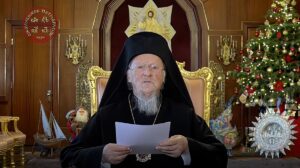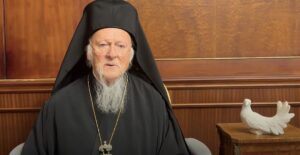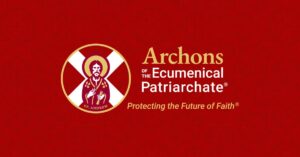Security forces often do not interfere because they actually agree with the attackers. The U.S. Commission on Religious Freedom (USCIRF), in its 2018 Annual Report, placed Egypt among its Tier 2 violators of religious freedom for “engaging in or tolerating religious freedom violations that meet at least one of the elements of the ‘systematic, ongoing, egregious’ standard for designation as a ‘country of particular concern,’ or CPC, under the International Religious Freedom Act (IRFA).”
The USCIRF report also notes that “as of early 2018, only 53 out of the 5,540 churches that applied had received approvals for renovation, construction, or registration under the 2016 Church Construction Law. Despite positive developments, the number of blasphemy cases filed against individuals increased in 2017 from 2016. In addition, human rights groups reported more than 120 sectarian attacks, including mob attacks against Christians and churches, and the lack of effective prosecution of perpetrators remained a serious concern.”
“Egypt Denies Human Rights Watch Report,” International Christian Concern, February 1, 2019:
02/01/2019 Egypt (International Christian Concern) – Egypt’s Public Prosecutor’s Office issued a statement on January 31st denying the content of a Human Rights Watch 2019 World Report. This report criticizes Egypt’s use of security forces as a tool of repression to violate a number of human rights. Egypt’s responding statement alleged that Human Rights Watch was publishing false information.
In 2017, Egypt banned several websites which monitor the state of human rights in-country. Nevertheless, Egypt presses the narrative that freedom of expression and belief exists in country. This was most recently asserted during a high-profile visit with French President Macron, who heavily criticized Egyptian President Sisi’s human rights record.
During the visit, President Macron attended St. Mark’s Cathedral, which was targeted by a suicide bomb in 2016, killing 29 Christians. President Sisi has used attacks against Christians to justify increasing reliance on security forces and restricting civil liberties.
The relationship between Egypt’s security forces and Christians is mixed. Security forces are present in front of nearly every church. Sometimes, they will prevent attacks from happening. For example, their activity saved Father Seifin Church in Nasr City from a significant terrorist attack. More often, however, churches are attacked by mobs of Islamic extremists. In these cases, security forces often step back and do not interfere.
Due to the tightening restrictions on the freedom of expression and other civil liberties, Egypt’s Christians must use great caution when addressing the challenges posed by security forces.







